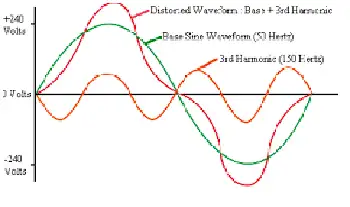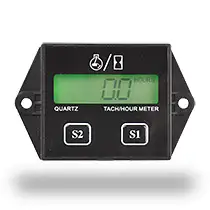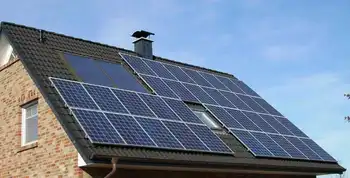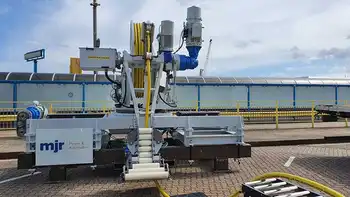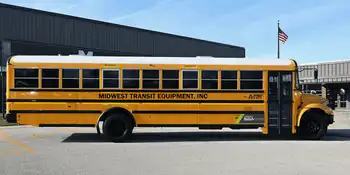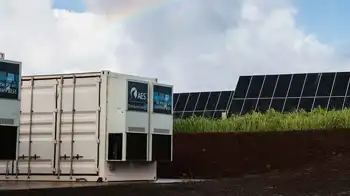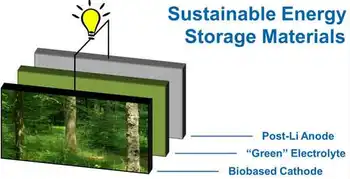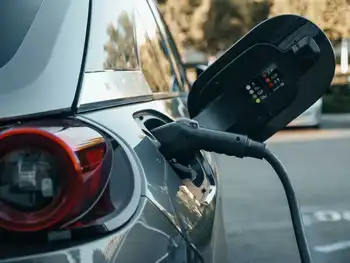EV owners can access more rebates for home, workplace charging
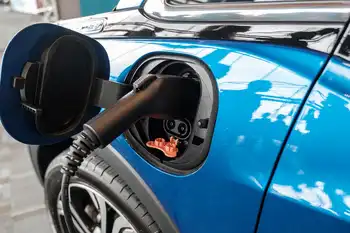
CSA Z463 Electrical Maintenance
Our customized live online or in‑person group training can be delivered to your staff at your location.

- Live Online
- 6 hours Instructor-led
- Group Training Available
CleanBC Go Electric EV Charger Rebate empowers British Columbia condos, apartments, and workplaces with Level 2 charging infrastructure, ZEV adoption support, and stackable rebates aligned with the CleanBC Roadmap 2030 and municipal top-up incentives.
Key Points
A provincial program funding up to 50% of EV charger costs for condos, apartments, and workplaces across B.C.
✅ Up to 50% back, max $2,000 per eligible Level 2 charger
✅ EV Ready plans fund building upgrades for future charging
✅ Free advisor support: up to 5 hours for condos and workplaces
British Columbians wanting to charge their electric vehicles (EVs) at their condominium building or their place of work can access further funding through EV charger rebates to help buy and install EV chargers through CleanBC’s Go Electric EV Charger Rebate program.
“To better support British Columbians living in condominiums and apartments, we’re offering rebates to make more buildings EV ready,” said Bruce Ralston, Minister of Energy, Mines and Low Carbon Innovation. “With the highest uptake rates of EV adoption in North America, we want to make sure that more people supporting our transition to a low-carbon economy have easy access to charging infrastructure.”
The Province’s CleanBC Go Electric EV Charger Rebate program is receiving $10 million as part of Budget 2021 to help with the upfront costs that come with EVs. Condominiums, apartments and workplaces that purchase and install eligible EV chargers can receive a rebate up to 50% of costs to a maximum of $2,000 per charger. Customers who take advantage of the EV Charger Rebate may have access to top up rebates through participating municipalities and local governments.
“People in British Columbia are switching to electric vehicles in record numbers as part of the transition to a cleaner, better transportation system,” said George Heyman, Minister of Environment and Climate Change Strategy. “We are building on that progress and accelerating positive change through the CleanBC Roadmap. We’re making it more affordable to own an electric vehicle and charging station, with incentives for zero-emission vehicles, so people can improve their driving experience with no air and climate pollution, and lower fuel and maintenance costs overall.”
The strata council for a condo building in Vancouver’s Olympic Village neighbourhood made use of the EV Ready program, as well as new legislation easing strata EV installs and federal support to upgrade their building’s electrical infrastructure. The strata council worked together to first determine, through a load review, if there was enough incoming power to support a level 2 charger for every owner. Once this was determined, the strata’s chosen electrical contractor went to work with the base installation, as well as individual chargers for owners who ordered them. The strata council also ensured a charger was installed in the guest parking.
“The majority of owners in our building came together and gave our strata council approval to make the necessary updates to the building’s infrastructure to support electric vehicle charging where we live,” said Jim Bayles, vice-president of strata council. “While upgrading the electrical and installing the EV chargers was something we were going ahead with anyway, we were pleased to receive quick support from the Province through their CleanBC program as well as from the federal government.”
CleanBC’s EV Ready option supports the adoption of EV infrastructure at apartment and condominium buildings. EV Ready provides rebates for the development of EV Ready plans, a strategy for buildings supported by professionals to retrofit a condo with chargers and make at least one parking space per unit EV ready, and the installation of electrical modifications and upgrades needed to support widespread future access to EV charging for residents.
Up to five hours of free support services from an EV charging station adviser are available through the EV Charger Rebate program for condominiums, apartments and workplaces that need help moving from idea to installation.
Single-family homes, including duplexes and townhouses, can get a rebate of up to 50% of purchase and installation costs of an eligible EV charger to a maximum of $350 through the EV Charger Rebate program.
The Province is providing a range of rebates through its CleanBC Go Electric programs and building out the fast-charging network to ensure the increasing demand for EVs is supported. B.C. has one of the largest public-charging networks in Canada, including the BC's Electric Highway initiative, with more than 2,500 public charging stations throughout the province.
The CleanBC Go Electric EV Charger Rebate program aligns with the recently released CleanBC Roadmap to 2030. Announced on Oct. 25, 2021, the CleanBC Roadmap to 2030 details a range of expanded actions to expand EV charging and accelerate the transition to a net-zero future and achieve B.C.’s legislated greenhouse gas emissions targets.
CleanBC is a pathway to a more prosperous, balanced and sustainable future. It supports government’s commitment to climate action to meet B.C.’s emission targets and build a cleaner, stronger economy for everyone.
Quick Facts:
- The CleanBC Go Electric EV Charger Rebate program provides a convenient single point of service for provincial and any local government rebates.
- EV adviser services for multi-unit residential buildings and workplaces are available through Plug In BC.
- British Columbia is leading the country in transitioning to EVs, even as a B.C. Hydro 'bottleneck' forecast highlights infrastructure needs, with more than 60,000 light-duty EVs on the road.
- British Columbia was the first place in the world to have a 100% ZEV law and is leading North America in uptake rates of EVs at nearly 10% of new sales in 2020 – five years ahead of the original target.
- The CleanBC Roadmap to 2030 commits B.C. to adjusting its ZEV Act to require automakers to meet an escalating annual percentage of new light-duty ZEV sales and leases, reaching 26% of light-duty vehicle sales by 2026, 90% by 2030 and 100% by 2035.
Learn More:
To learn more about home and workplace EV charging station rebates, eligibility and application processes, including the EV Ready program, visit: https://goelectricbc.gov.bc.ca/
To learn more about EV advisor services, visit: https://pluginbc.ca/ev-advisor-service/
To learn more about the suite of CleanBC Go Electric programming, visit: www.gov.bc.ca/zeroemissionvehicles
To learn more about the CleanBC Roadmap to 2030, visit: https://cleanbc.gov.bc.ca/






